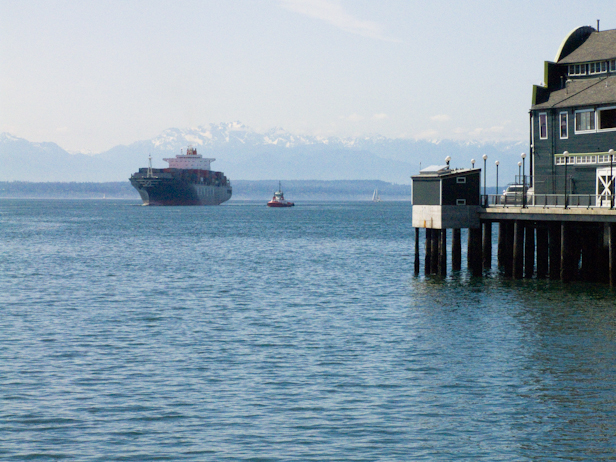Runoff and dog poop are killing Puget Sound.
On Sept. 17, a diverse coalition of 57 cities, counties, businesses, universities, and advocacy groups launched a campaign called Puget Sound Starts Here to try and deep six these and other threats to Washington State’s vast inland waterway. (Funding for the effort is coming from state and private sources.)
Puget Sound is home to orcas and octopi, salmon, and sea lions and four million people. The people — and their pets — are the problem.
On an average day, stormwater runoff fouled by lawn fertilizers, household cleaning products, and oil from roadways sends 140,000 pounds of toxic chemicals into streams and rivers, which empty into the Sound. An amount of oil equivalent to the 11-million gallon Exxon Valdez spill washes into Puget Sound every two years.
Puget Sound pet poop adds even more goodies: fecal coliform bacteria, roundworms, salmonella, giardia, and perhaps even the dreaded MRSA, the staph bacteria that’s been turning up on beaches around Seattle.
These environmental insults are bad for Puget Sound orcas, already among the most PCB-contaminated mammals; bad for the region’s multi-million fishing and shellfish industries and for its $9.5 billion tourist industry; and of course, bad for the Sound itself.
“Puget Sound is dying,” said David Dicks, director of Puget Sound Partnership, one of the coalition members. “And many of us don’t realize that our actions are contributing to its decline.”
Puget Sound Starts Here hopes to change that. A new advertising campaign and website encourage residents to take simple steps, including reducing or eliminating the use of fertilizers and pesticides, fixing any fluid leaks in the car, choosing biodegradable home cleaning products and religiously scooping that poop.
Polling shows that 97 percent of Puget Sound residents value the Sound and want to protect it, but that a mere 25 percent know there’s a problem. Puget Sound Starts Here plans to boost awareness of the problems confronting Puget Sound and inspire fans to become part of the solution.


